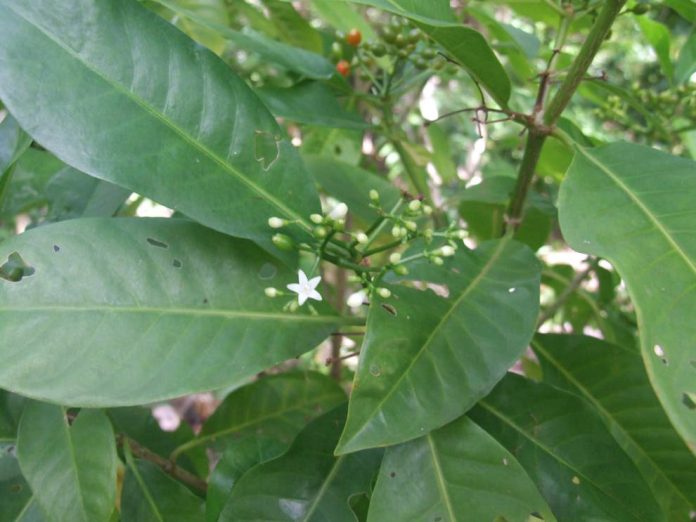A Samoan medicinal plant may be as effective as ibuprofen for treating inflammation, according to a new study that combines traditional community knowledge with a modern scientific approach.
Psychotria insularum, locally known as matalafi, is a small tree about 2m in height with small white flowers and glossy red berries, and is used to treat different forms of inflammation.
Researchers have said the plant is used to treat the inflammation associated with fever, body aches, swelling, wounds, skin infections, as well as respiratory infections.
Over the last four decades, even as more than 50 per cent of the approved drugs across the world have been derived from natural products, or based upon natural products or botanical drugs, the scientists say Samoan traditional medicine is relatively understudied.
In the current study, published in the journal PNAS, a team led by indigenous Samoan Dr Seeseei Molimau-Samasoni from the Centre for Biodiscovery, Victoria University of Wellington in New Zealand, have discovered the underlying molecular mechanism by which matalafi lowers inflammation.
They studied the effects of varying concentrations of homogenates from the plant’s leaves on components of the body’s immune system known to play a role in inflammation.
The researchers also compared these effects on the immune system components with the effects of the plant’s active chemical components as well as the anti-inflammatory drug ibuprofen
They found that matalafi works by interacting with the iron within cells of the body, in what is called an iron homeostasis mechanism. The scientists identified compounds in the matalafi plant – rutin and nicotiflorin – which both act by binding iron in cells in a process called iron chelation.
The anti-inflammatory effects of the P insularum is as potent as the commonly prescribed anti-inflammatory drug ibuprofen, the study noted.
“The similarity in the anti-inflammatory activity of the P insularum homogenate with the extensively used ibuprofen would be consistent with the diverse uses of the P insularum homogenate in Samoan traditional medicine,” the scientists wrote in the study.
They are currently exploring if the iron-chelating properties of the plant compounds could offer applications of matalafi beyond its traditional use, such as in treating cancer, neurodegenerative diseases, cardiovascular diseases, and diabetes.
“These are traditional medicines our people have been using for hundreds of years, and we are now finding science that supports that there is genuine activity in some of our medicines,” Dr Molimau-Samasoni told local media outlet Stuff.
“I do want to stress that traditional medicines need to be investigated scientifically before they are administered widely… there are still more steps to be done,” she added.
SOURCE: THE INDEPENDENT/PACNEWS






















